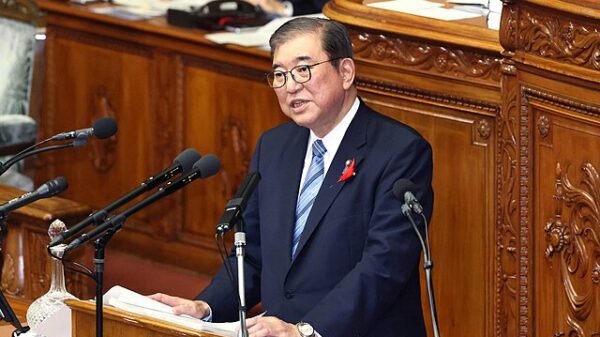Staff writer Mehmet Temur previews the upcoming Spanish elections.
The upcoming general elections in Spain, which will take place on 23rd July, will determine who will be the next president and will have significant impact on climate diplomacy. The unexpected decision to hold early elections was prompted by the surprising results of the recent local elections, where the Popular Party (PP) surpassed the ruling Socialist Workers’ Party (PSOE) by almost 800,000 votes. Polling suggests that the right wing PP is most likely to be the largest party, although as the election approaches, debates will play a crucial role in swaying undecided voters and determining their trust in the candidates.
The vote will see a total of 37,466,432 eligible voters, with 35,141,122 residing in Spain and 2,325,310 living abroad. Over 1.6 million citizens will have the opportunity to vote for the first time in a general election, having turned 18 since the last parliamentary vote held on 10th November 2019.
In these Spanish elections, 350 representatives will be elected to the Congress of Deputies. Each province will select a minimum of two deputies, except for Ceuta and Melilla, the two Spanish exclaves in North Africa, which will choose one each. The remaining 248 representatives will be distributed among the provinces with larger populations. For the Senate, 208 representatives will be chosen, with each province electing four senators. Gran Canaria, Tenerife, and Mallorca will elect three each, while Ceuta and Melilla will elect two. Additionally, one senator will be chosen for Menorca, Fuerteventura, Eivissa-Formentera, El Hierro, La Gomera, La Palma, and Lanzarote, the smaller Canary and Balearic isles.
The major parties and candidates competing in the 23rd July elections include Pedro Sánchez, the incumbent Prime Minister and candidate for the PSOE, the reigning centre-left party; Alberto Núñez Feijóo, the candidate for the PP on the centre-right; Yolanda Díaz, representing Sumar, the populist left coalition; and Santiago Abascal, leading Vox for the far-right. Candidates from the regional parties include Gabriel Rufián for ERC (a centre-left Catalan pro-indepence party), Aitor Esteban for PNV (a centrist party representing Basque interests), Oskar Matute for EH Bildu (the Basque Sinn Féin), Miriam Nogueras for Junts (on the centre-right of the Catalan independence movement), Roger Montañola for PDeCat (another centre-right Catalan independentist formation), Néstor Rego for BNG (a socialist and Galician nationalist party), Albert Botrán for CUP (which represents the far-left of Catalan independence), Cristina Valido for Coalición Canaria (a centrist party representing the interests of the Canary Islands), and Luis Campos for Nueva Canarias (a Canarian party on the centre-left).
As the key parties compete for the presidency, their respective programs outline their proposed actions if elected. The PSOE aims to establish lower healthcare waiting times, setting 120 days for operations and 60 days for consultations, provide free public transportation for individuals under 24 and exempt students without scholarships from paying tuition fees for the following academic year. On the other hand, the PP presented a manifesto with 365 measures to unleash the potential of the “gran país” (great country), including reducing income tax for individuals earning less than 40,000 euros and introducing a unified university entrance examination. Vox’s program focuses on eliminating VAT on essential goods, significantly reducing income tax to two flat rates, increasing public spending on healthcare, education, and infrastructure. Moreover, they want to repeal laws concerning LGBTQ+ protections, and Integral Law on Gender Violence, claiming that the law only discriminates against men as its measures on domestic violence only apply against men. Sumar’s proposals involve providing two million public housing units for social rent over ten years, establishing a maximum 37.5 hour work week without salary reductions, implementing legislation to set maximum waiting times, launching a campaign against hate speech to combat LGTBI+ discrimination and adjusting benefits according to the consumer price index.
Amidst the election fervor, Spain takes over the rotating Presidency of the Council of the European Union starting 1st July. This transition occurs during a period of uncertainty due to the elections, where, despite the PP stating that they would never form a coalition with them, Vox could play a part in the formation of the next government. The rotating presidency carries importance, particularly in the context of implementing the global aspect of the European Green Deal. Spain’s presidency will oversee the remaining legislative processes related to the Green Deal before the next European elections, which is crucial considering the need to demonstrate progress at the upcoming COP28 in the UAE. The snap elections raise questions about the country’s future priorities and its ability to provide strong leadership on the global stage of climate action. This would especially be a challenge if a right-wing party or parties that do not prioritise a climate agenda form part of the government, such as Vox and to a lesser extent, Partido Popular.
Spain’s role as President of the Council of the European Union entails steering the working agenda, setting priorities, mediating negotiations, and shaping climate-related Council Conclusions for the next six months. Integrating climate considerations into foreign policy is a long-term endeavor that requires support from all member states. The outcome of the snap elections could influence Spain’s approach, potentially resulting in a government with different priorities and implications for climate advocates like Teresa Ribera, the current Minister for Ecological Transition. In comparison, a hypothetical PP government is expected to prioritise climate policies much less, as suggested by their recent decision to withdraw from the negotiations regarding the Nature Restoration Law in the European Parliament. In any case, it is vital for Spain to avoid succumbing to climate scepticism and ensure stable leadership that prioritises the EU’s support for global climate action.
The EU needs a clear and long-term vision to guide its efforts in integrating climate considerations into all fields of foreign policy. This collective vision should outline a geopolitical strategy to direct EU institutions and Member States’ diplomacy towards common climate priorities. Advancing from a technical to a more political approach to climate diplomacy is necessary, broadening its scope beyond UNFCCC negotiations. Strengthening and expanding the “Team Europe” approach is also crucial to foster ambitious climate action across all foreign policy areas.
Every country that holds elections during its European Council Presidency has been a source of concern, as a change of government might lead to an inconsistent policy agenda. However, this Spanish elections are particularly crucial, as the international community expects strong leadership from the EU, and any shortcomings in climate diplomacy may undermine the bloc’s credibility as a driver of change.


















